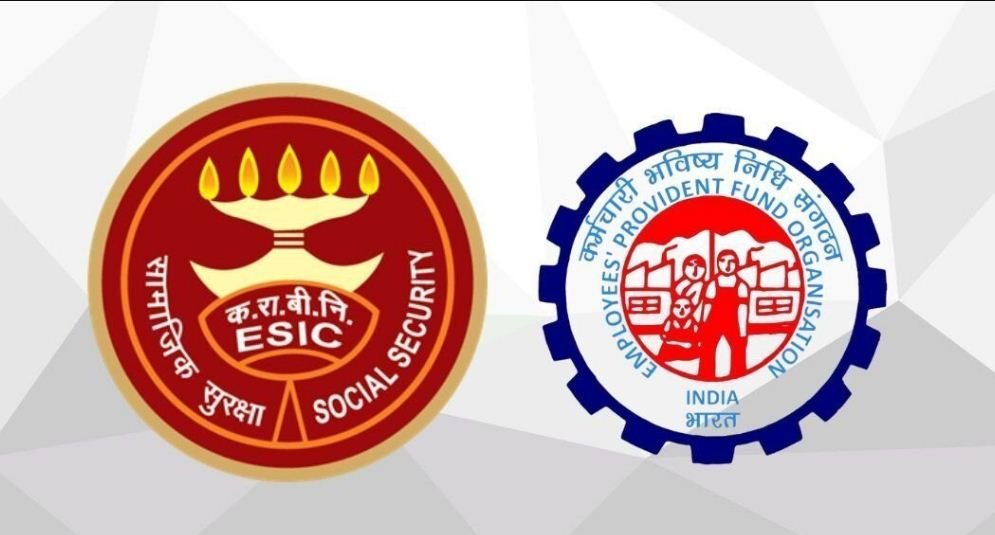
Salary is an amount paid to an employee in return for his/her work as specified in the job offer or service contract. But one must understand the various parts of a salary, namely the gross salary, net pay and CTC. In this article, we will share in-depth information about gross pay.
Here’s an overview of what this article will cover.
- What Is Gross Salary.
- Components with Direct Benefits
- Components with Indirect Benefits
- How to calculate your gross salary in India from CTC
- Example of Gross Salary and Net Salary
- Taxation Process of Gross Salary?
What Is Gross Salary?
Whenever an employee join any company, the company/ organization offers a salary for their services. From a company’s perspective, the salary paid to employees is the cost to the company, commonly known as the CTC. In simple terms, it is the amount that the company will have to incur for a specific financial year. This may or may not change in future years. It is important here to note that the cost to the company and the in-hand salary of the employee is different.
The employees who are paid for their services are offered gross salary as their CTC (cost to company). Cost to the company is the amount that the company will have to incur on an employee for a specific year. But, the point to remember here is that cost to the company is never equal to the amount of money one gets to take home.
However, not many know the subtle difference between take-home salaries, cost to company, and gross salary. Let us discuss one of these important elements i.e. Gross Salary in detail.
Components with Direct Benefits
- Basic salary
- Dearness allowance
- House rent allowance (HRA)
- Leave travel allowance
- Telephone or mobile phone allowance
- Conveyance allowance Special allowances
Components with Indirect Benefits
- Performance linked incentives or bonus
- Overtime payments
- Accommodation provided by the employer
- Utility bills such as electricity and water paid by the employer
- Arrears of salary
- Meal coupons
- Health care costs
Direct Benefits under Gross Pay
Let us take a look at the components under direct benefits of gross income in detail below.
- Basic Salary: The basic salary is an amount that forms the core of your salary. This part of a salary comprises about 30-45% of a CTC. Provident fund gets calculated on Basic + DA.
- Dearness Allowance (DA): A dearness allowance is paid to employees to negate the effect of inflation. Inflation is a phenomenon that makes the price of general goods rise by a certain amount each year. With an increase in prevailing price, an employee’s salary also needs an increment to survive comfortably. DA also varies according to your location.
- HRA (House Rent Allowance): A House Rent Allowance or HRA is also one of the most essential components of salary paid to an employee to cover the accommodation expenses. HRA also offers tax benefits to employees to a certain extent.
- Leave Travel Allowance (LTA): This is an allowance offered to employees by their employers to cover travel expenses during vacation. An employee will be required to provide the original bills to his/her company to claim the LTA. The LTA amount varies from one employer to another depending on the designation of an employee.
- Conveyance Allowance: Employees spend considerable money travelling from their residence to their office every day. Any natural disaster or unruly weather makes travelling all the more difficult and expensive. Therefore, various companies pay this allowance to cover a portion of employees’ travel expenses. An employee can reimburse a part of their travel expenses as per the amount offered as conveyance allowance. A company generally pays this allowance if it does not provide any transport facility to its employees.
- Special Allowance – Special allowance is a fixed amount given to employees over and above the basic salary to meet specific daily requirements.
- Mobile Allowance – This is a part of employers’ gross salary to cover a certain percentage of mobile expenses.
Indirect Benefits under Gross Pay
- Performance-linked Incentives or Bonuses: This type of incentive or bonus is paid to an employee based on performance. The amount varies with the work and designation of an employee.
- Overtime Payments: Employees can get overtime payments for working extra hours beyond their regular shift timings.
- Health Care Costs: Companies offer healthcare benefits to employees to provide them financial cover against hospitalisation due to any disease or accident. These benefits are in the form of health insurance or mediclaim. You can cover your family members like spouse and children under such schemes.
- Company Accommodation: Many firms offer accommodation to employees when they are relocating for a job. With this benefit, one can stay in the company residence for a certain period.
- Meal Coupons: Firms often provide meal coupons to employees these days as a part of employee welfare initiatives.
How to calculate your gross salary in India from CTC?
It is important to know how much your take-home salary will be after all the deductions have been made. Your company may give you an approximate figure, but it would be best to calculate it yourself. Know what deductions are made from your CTC before signing the employment contract.
Gross Salary = Total Monthly Income –Employee Contribution – Employer Contribution – Taxes
- Start with the basic pay, then add allowances. Your employer will likely give you an exhaustive list of allowances in your CTC, but it is essential to understand what they mean. For example, HRA or LTA might be expressed as a percentage of the basic salary. If your employer gives you this figure, make sure to convert it into an amount deducted every month.
- Add benefits like PF or insurance premiums. Any money paid toward the Public Provident Fund, life insurance policies, pension plans, and gratuity schemes is eligible deductions under Section 80C of the Income Tax Act. Your company might deduct a specific amount every month, but it is best to keep a record of the total and make sure this amount is updated as it might change from time to time. You will then use that number when you file your income tax returns.
- Include employee expenses. If your employer reimburses you for specific expenditures, these can be deducted from your gross salary figure. For instance, if the company pays for the cab you use to go home every day, this money can be taken off your gross salary. Keep detailed records of all expenditures reimbursed by your employer to clear what was an expense and what was not.
- Subtract anything not allowed as a deduction. Section 80C deductions are allowed, but anything not listed there is not. This includes mobile phones and gifts that your company pays for. Be aware that the concept of “allowances” sometimes does not apply to these items either.
- Add back any allowances that were already deducted earlier in this calculation. For instance, if your company reimburses you 100 rupees toward the cab fare every day, but this is already included in the costs mentioned earlier (and therefore deducted from your salary), you should add it back.
- Include all other deductions like tax or any money paid toward other schemes outside Section 80C. For instance, if you are contributing to a pension plan yourself, make sure to include that in this calculation.
- If applicable, remember to include the matching amount your company is contributing toward your PF. In some instances, you and your employer have to contribute a specific percentage of your monthly salary toward the fund. If you are unsure about it, ask for more information from HR or official sources on the PF website.
- Add everything together to get your gross salary.
Example of Gross Salary and Net Salary
Mr.X works as a HR manager with ABC Group Ltd. His gross salary per month is Rs.61, 000 while his net-take home is just Rs. 56,000.
Salary Components
Basic Salary = Rs.25, 000
HRA = Rs.20, 000
LTA = Rs.10, 000
Travel Allowance = Rs.15, 000
Total = Rs.70, 000
Deductions:
Provident Fund – Rs. 3000 (Employer + Employee Share)
Income Tax – Rs. 1500
Profession Tax – Rs. 500
Total Deductions – Rs. 5000
Therefore, Net Salary = Gross Salary – Deductions
Rs.61,000 – Rs.5000 = Rs.56, 000.
Taxation Process of Gross Salary
To calculate Income Tax, gross salary minus the eligible deductions is considered. For instance, you will have to deduct HRA exemption, any home loan EMI, investments under section 80C and 80D and similar such things for calculation of taxable income.








